
Do your students struggle with math facts? Discover how my karate math program - Kicking It Math can be the key to mastering math facts effortlessly!
Ever since my days of teaching 7th grade, I have wanted to help my students develop their math facts fluency. So many of my students did not know their basic math facts, which made learning more advanced math concepts challenging!

That's why I turned to the powerful technique of karate to create an engaging and effective method of mastering math facts. Read on to discover how karate math facts can transform your students' learning experience."
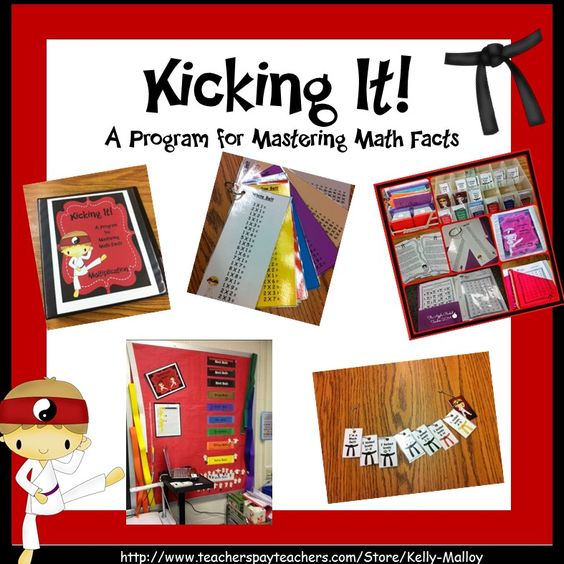
This post contains affiliate links. I earn a small commission each time someone makes a purchase using one of my links, which helps to support the blog. All opinions are my own and I only promote brands and products that I have used myself and truly love.
I would struggle to teach a student how to multiply 3/4 X 2/8 because they didn't know what 4X8 was. So. when I started teaching elementary I vowed that my kiddos would not leave me without knowing their math facts. But. how to do that? A lot of people say, "They just have to memorize them." Well, true, but what if they don't WANT to memorize them? What if there are too many facts to memorize and they just CAN'T do it? What then?
I started developing this math facts program with a karate twist!
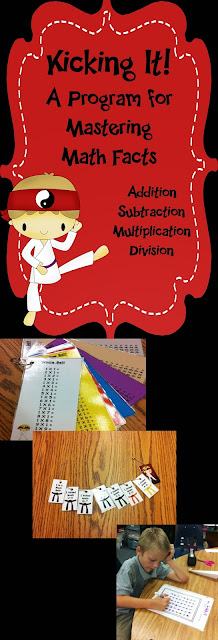 Facts Fluency Program" width="218" height="640" />
Facts Fluency Program" width="218" height="640" />
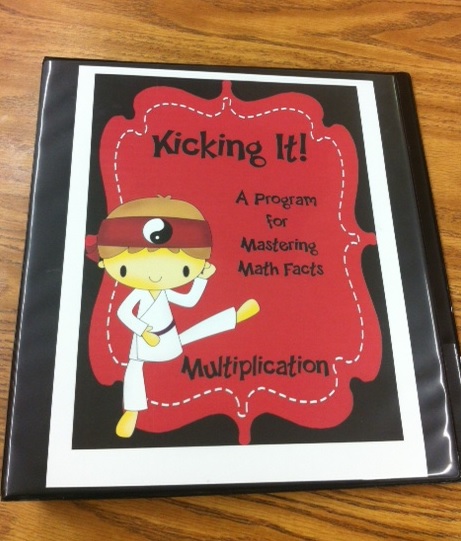
The program works with key elements of brain research:
* Students can hold only 2-3 new pieces of information in their working memory at one time. That is why each new practice session only includes 2 to 3 new facts and their opposites.
* Students learn best when they involve two or more senses in learning. This program incorporates both oral and written practice. Learners learn 90% of what they SAY and DO (Bloom, 1987).
* Students can remember things more easily when they connect new information with something they already know (Woolfolk, 1998). All new math facts practice sheets include previously learned facts along with the new facts. This isn't simply learning their 1s, then their 2s, etc. because that doesn't work.
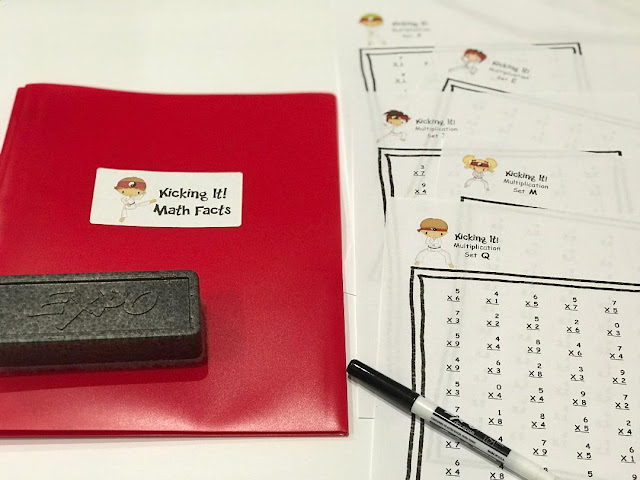
* In this program, some of the harder math facts (such as 9X6 are taught in the middle rather than the end so the student really has more time to work on it).
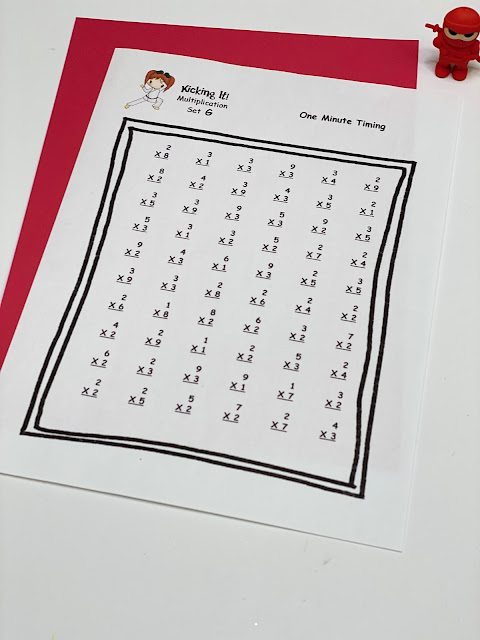
* Another way to increase student memory is through verbal rehearsal. When a student practices (at home or at school with a partner) and makes a mistake, they repeat the correct problem and answer three times to cement it in their brain. They are presented the same problem three tries later to work through it again.
* Memory increases when dopamine is involved - basically if it is fun, kids will remember more!

So enough of the research and on to the fun!